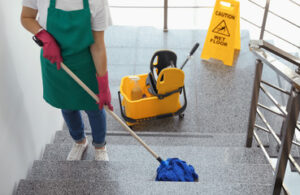Maintaining an air conditioning system is essential for ensuring comfort and efficiency in any home or commercial space. When an AC unit malfunctions, it can lead to discomfort, increased energy bills, and potential damage to the system.

Understanding the most common AC issues and knowing how to address them promptly can help prevent costly repairs and extend the lifespan of the unit. Regular maintenance is key to avoiding breakdowns and ensuring that the system operates at its best throughout the year. Contact AC Repair Round Rock for professional help.
One of the most frequent issues with AC units is poor airflow, which can stem from clogged filters, blocked vents, or problems with the fan. A dirty or clogged air filter restricts the flow of air, making the system work harder to cool the space. This not only reduces efficiency but also puts additional strain on the unit, potentially causing further damage. Replacing or cleaning air filters regularly is a simple yet effective way to maintain good airflow and improve overall performance. Ensuring that vents are free from obstructions, such as furniture or debris, can also help improve air circulation.
Refrigerant leaks are another common issue that can affect the performance of an AC unit. When refrigerant levels are low, the system struggles to cool the space effectively, leading to increased energy consumption and higher utility bills. Detecting a refrigerant leak can be challenging, but signs include ice buildup on the evaporator coil, hissing noises, and reduced cooling efficiency. Repairing refrigerant leaks requires professional expertise to ensure the system is properly sealed and recharged with the correct amount of refrigerant.
Electrical issues can also cause an AC unit to malfunction. Faulty wiring, loose connections, or damaged capacitors can prevent the system from starting or cause it to shut down unexpectedly. Diagnosing electrical problems requires a careful inspection of the unit’s components and wiring. Replacing worn-out capacitors or securing loose connections can restore proper function and prevent further damage to the system. Ensuring that the circuit breaker is functioning correctly and that the thermostat is calibrated properly can also help prevent electrical issues.
Frozen evaporator coils are a sign of restricted airflow or low refrigerant levels. When the coils freeze, the AC unit struggles to absorb heat from the air, resulting in poor cooling performance. Thawing the coils and addressing the underlying cause, such as a dirty filter or low refrigerant, can help restore proper function. Keeping the evaporator coil clean and ensuring that the airflow is not restricted are essential for preventing this issue from recurring.
A malfunctioning compressor is another serious issue that can affect an AC unit’s performance. The compressor is responsible for circulating refrigerant through the system, and if it fails, the unit will not be able to cool the space. Signs of compressor problems include strange noises, reduced cooling capacity, and frequent system shutdowns. Replacing a compressor can be costly, so addressing minor issues before they escalate can help avoid expensive repairs. Ensuring that the system is not overworked and that refrigerant levels are properly maintained can help protect the compressor from damage.
Drainage problems can also affect an AC unit’s performance. The condensate drain line is responsible for removing moisture from the system, and if it becomes clogged, water can back up into the unit or leak into the surrounding area. This can lead to water damage and mold growth, which can further impact the system’s efficiency and indoor air quality. Regularly checking the drain line for blockages and ensuring that it is properly positioned can help prevent drainage issues. Cleaning the drain line with a mixture of water and mild detergent can also help keep it clear and functioning properly.
The thermostat plays a crucial role in regulating the temperature and overall performance of an AC unit. If the thermostat is not calibrated correctly or if the batteries are low, the system may not function as intended. Checking the thermostat settings and replacing the batteries regularly can help prevent issues with temperature control. Upgrading to a programmable or smart thermostat can also improve efficiency by allowing more precise control over the system’s operation.
Routine maintenance is essential for keeping an AC unit in top condition. Scheduling regular inspections and tune-ups with a qualified technician can help identify and address potential issues before they become major problems. During a maintenance visit, the technician will typically clean the coils, check the refrigerant levels, inspect the electrical components, and test the system’s overall performance. Addressing minor issues early on can prevent costly repairs and extend the lifespan of the unit.
Ensuring that the AC unit is the correct size for the space it is cooling is also important for maintaining efficiency. An undersized unit will struggle to cool the space, leading to increased wear and tear, while an oversized unit may cycle on and off too frequently, reducing overall efficiency. Consulting with a professional to determine the appropriate size for the space can help optimize the system’s performance and reduce energy consumption.
Poor insulation and air leaks can also affect the efficiency of an AC unit. If cool air is escaping through gaps around doors, windows, or ductwork, the system will have to work harder to maintain the desired temperature. Sealing air leaks and improving insulation can help reduce energy loss and improve overall performance. Adding weather stripping or caulking around windows and doors can help prevent drafts and keep cool air inside.
Using ceiling fans and window coverings can also help improve the efficiency of an AC unit. Ceiling fans help circulate air, allowing the system to cool the space more evenly. Closing blinds or curtains during the hottest part of the day can reduce the amount of heat entering the space, helping the system maintain a consistent temperature without overworking.
It is also important to monitor the age and overall condition of the AC unit. Most systems have a lifespan of around 10 to 15 years, depending on the quality of the unit and how well it has been maintained. If the system is nearing the end of its lifespan and requires frequent repairs, it may be more cost-effective to replace it with a newer, more energy-efficient model. Modern systems often feature advanced technology that improves performance and reduces energy consumption.
Investing in a maintenance plan can provide peace of mind and help ensure that the AC unit remains in good working condition. Many service providers offer maintenance plans that include regular inspections, priority service, and discounts on repairs. Having a maintenance plan in place can help catch potential issues early and keep the system running smoothly throughout the year.
Proper maintenance and timely repairs are key to ensuring that an AC unit operates at peak efficiency. Regularly replacing filters, checking refrigerant levels, inspecting electrical components, and keeping the coils clean can help prevent common issues and extend the lifespan of the system. Addressing minor problems before they escalate can save money on repairs and ensure that the unit continues to provide reliable cooling. Working with a qualified professional for maintenance and repairs can help keep the system in top condition and improve overall comfort and efficiency.



